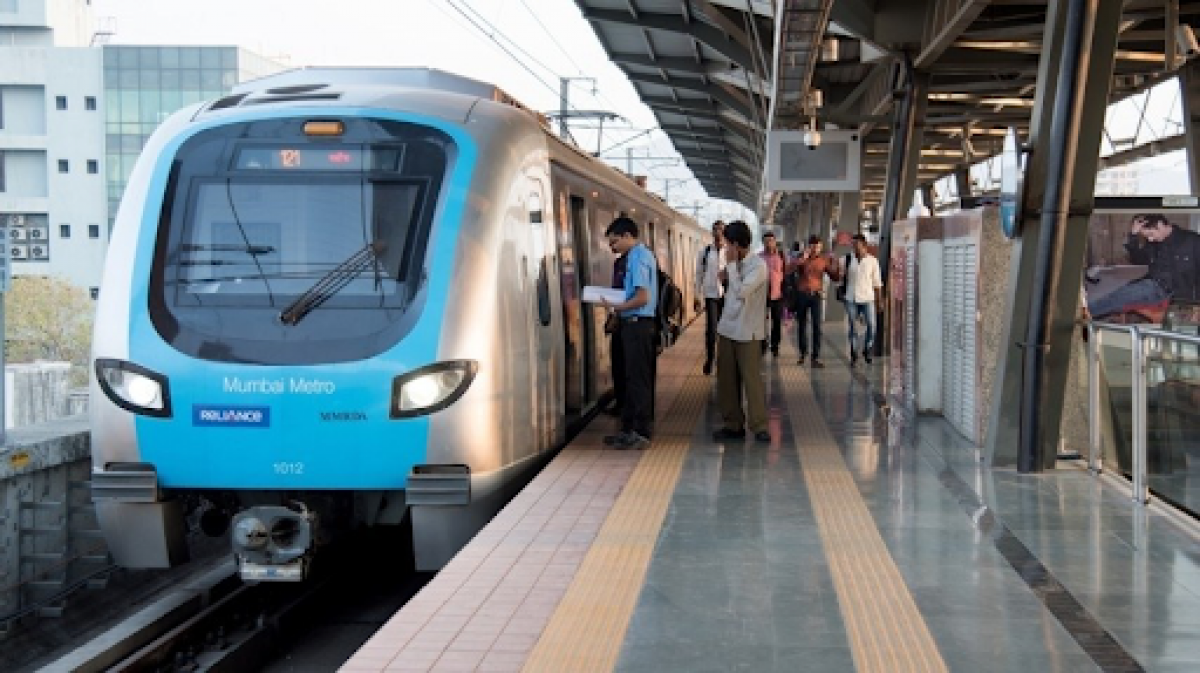MMRDA has acquired 174 hectares in Mogarpada, Thane, to develop Mumbai’s largest integrated metro depot, serving four major lines across nearly 56 km, signalling a strategic advance in the region’s sustainable and commuter‑centric urban planning.
The Mumbai Metropolitan Region Development Authority (MMRDA) confirmed on June 16 that it has taken possession of 174 ha of land in Mogarpada, Thane, to build an integrated depot for Metro Lines 4, 4A, 10 and 11 . This centrally located facility is set to become the city’s primary operations and maintenance hub for a combined 55.99 km corridor extending from Chhatrapati Shivaji Maharaj Terminus (CSMT) to Mira Road. According to the MMRDA, the land was acquired under a Government Resolution dated October 16, 2023, and transferred on an “as-is-where-is” basis. The Delhi Metro Rail Corporation prepared the Detailed Project Reports recommending a single unified depot to enhance operational efficiency and integration across the four lines.
Senior MMRDA officials stated that the depot, being executed by SEW–VSE JV under a ₹905–906 crore contract, will feature 64 stabling lines (32 active, 32 reserve), 10 heavy maintenance lines, 10 inspection bays, automated train wash facilities, under-floor wheel lathe, a blow-down dust clearing plant, and an operations control centre. Staff quarters and auxiliary substations will support round‑the‑clock functionality. MMRDA’s Metropolitan Commissioner described the depot as a “cornerstone” for commuter-centric connectivity, reinforcing reliable service across rapidly expanding urban corridors. Once operational, particularly for Lines 4 and 4A, it will benefit approximately 1.2 million daily passengers and reduce travel times by nearly 50 percent .
Land acquisition faced resistance from roughly 167 local farmers who had tilled the site for decades. While titleholders were offered 22.5 percent of developed land and non-titled occupants 12.5 percent, some petitioned under the Land Acquisition Act, leading to delays . The state government, invoking urban infrastructure priorities, directed eviction actions to clear the way for depot construction . The site’s strategic positioning along Ghodbunder Road offers direct connectivity to Metro Line 4 (Wadala–Kasarvadavali), Line 4A (Kasarvadavali–Gaikmukh), Line 10 (Gaikmukh–Mira Road), and Line 11 (Wadala–CSMT), reflecting coordinated multimodal urban planning
Urban experts argue that such integrated depots are essential to enhance sustainability outcomes. By consolidating maintenance and operations, MMRDA reduces land fragmentation, minimises carbon footprints, and allows for future facility expansion, contributing to equitable and efficient public infrastructure design. However, analysts caution that accelerated deployment must be balanced with inclusive land policies. While rehab models offer land compensation to displaced farmers, ensuring transitional livelihoods and transparent grievance-remedy mechanisms remains vital to fairness.
From an environmental lens, the Mogarpada depot design aligns with low-carbon urban mobility ambitions. Automated train wash systems reduce manual resource use, while centralised heavy maintenance prevents unnecessary train runs, collectively lowering emissions linked to operations. Gov‑wide, integrated infrastructure is key to meeting Net Zero commitments and supporting eco‑city targets. The Mogarpada facility’s projected capacity—facilitating 12 lakh daily commuters—positions Metro as a mass transit backbone, reducing road congestion and improving equity in modal access across income groups.
As construction commences post-possession, prioritising best practices—such as green buffer zones, noise mitigation, and native landscaping—will be crucial to mitigate urban sprawl and create shared civic spaces. The Mogarpada depot marks a critical infrastructural milestone. Yet, successful deployment depends on synergy among MMRDA, district and municipal bodies, and local communities. Transparent land negotiations, robust environmental management, and inclusive rehabilitation will determine whether the facility becomes a model of sustainable urban transit or yet another project marred by socio‑environmental friction.
Also Read : Mumbai Road Collapses BEST Bus Rescued Swiftly Using Metro Crane


